Charles E W Bean, Diaries, AWM38 3DRL 606/38B/1 - Notebook - Part 5
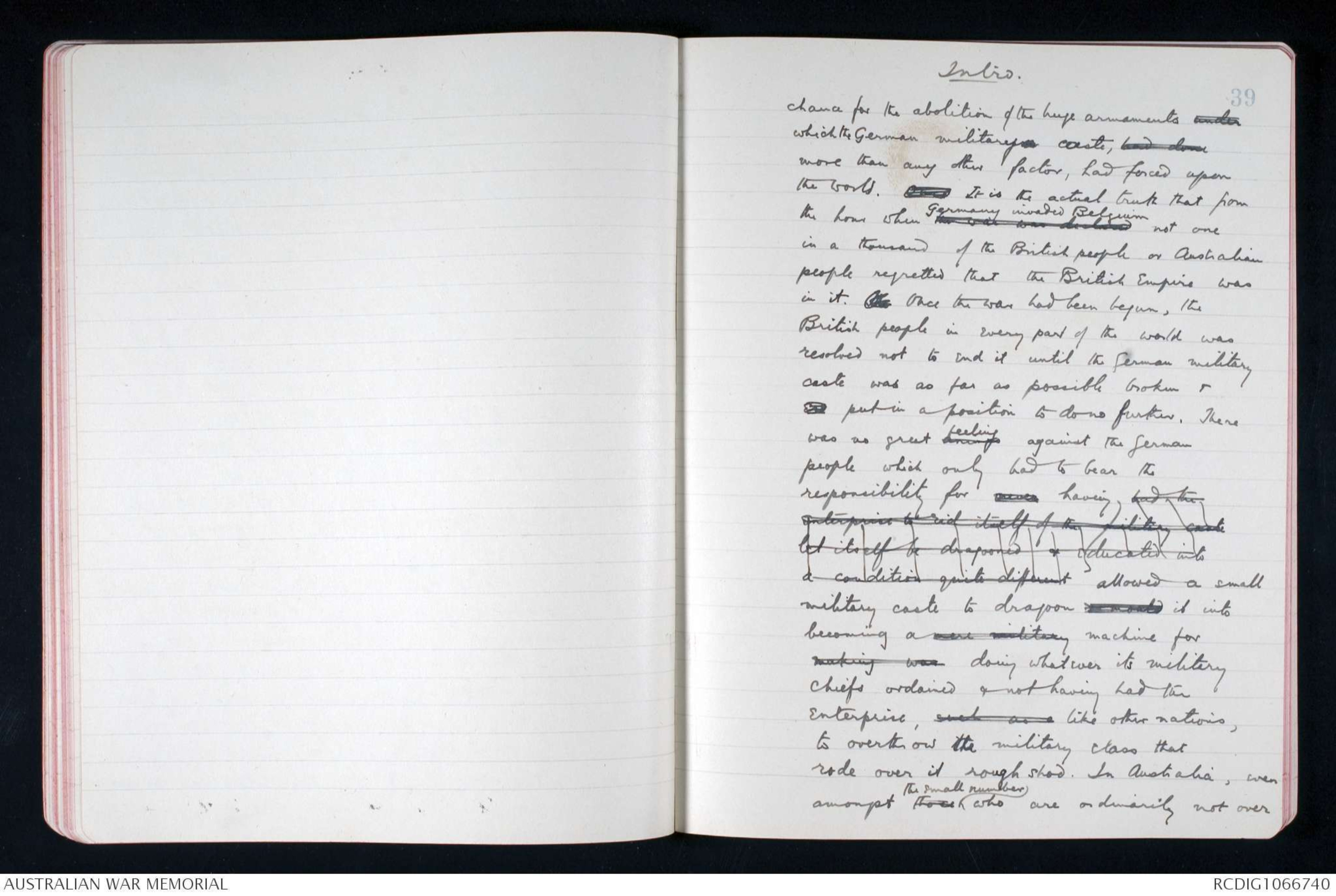
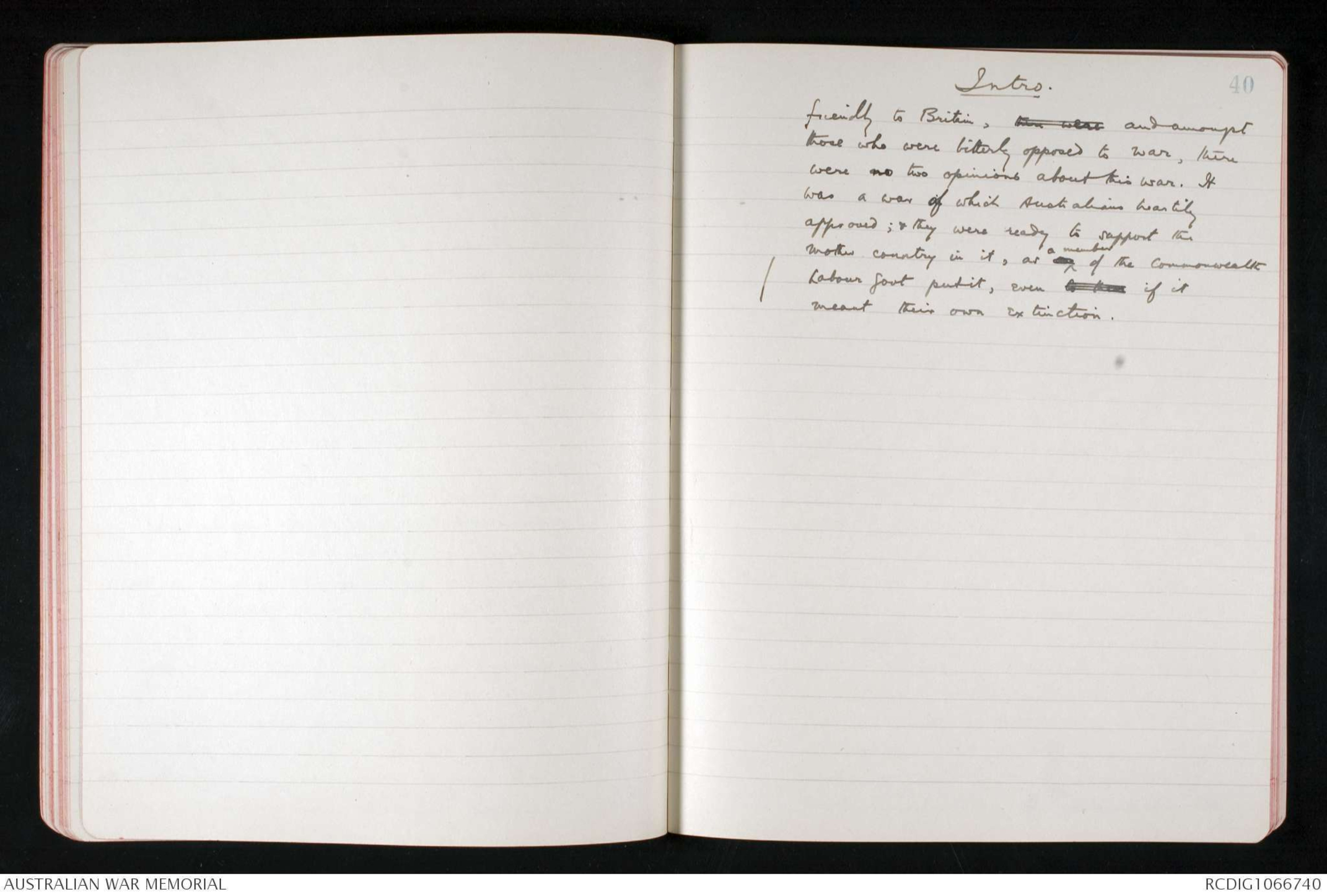
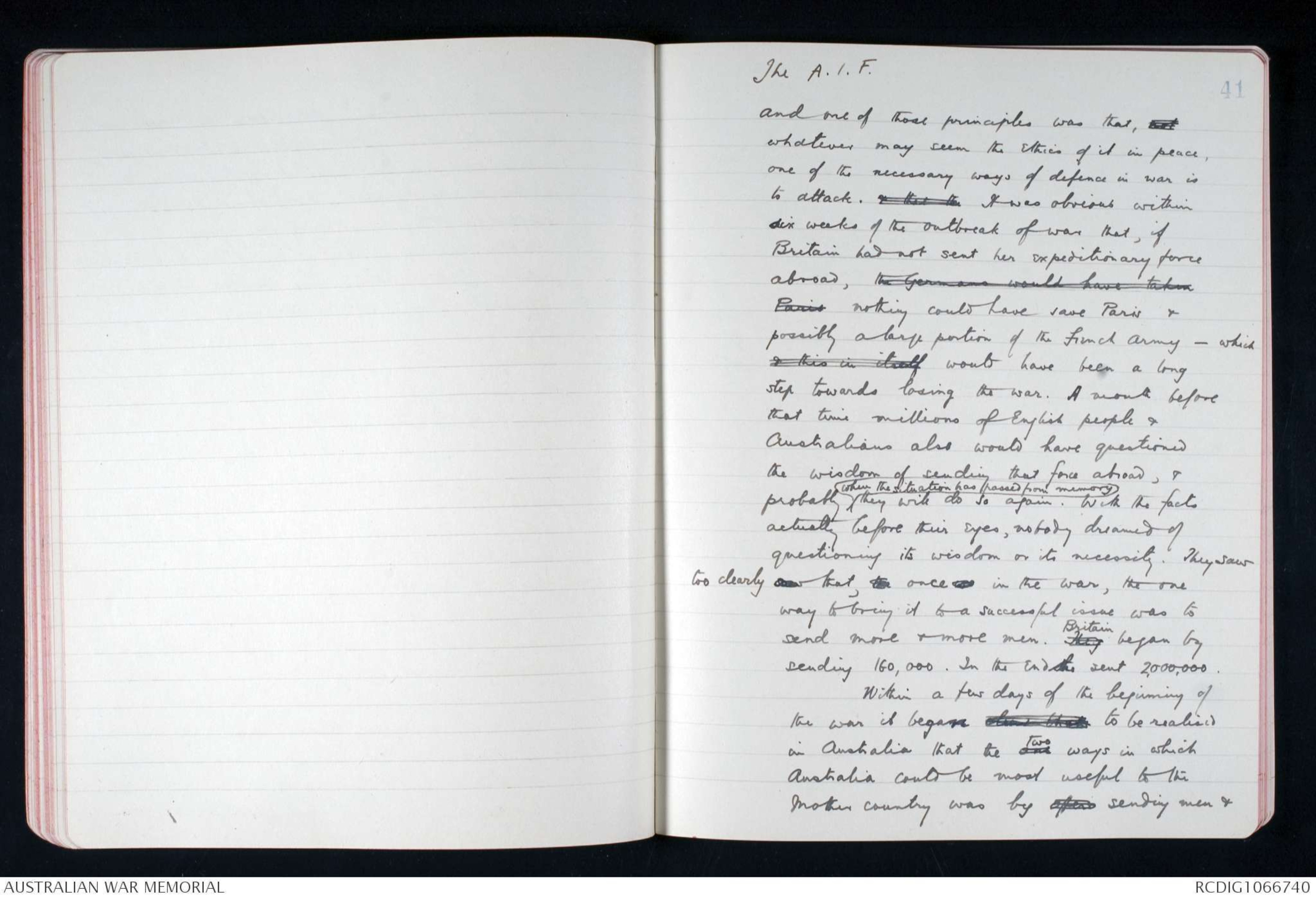
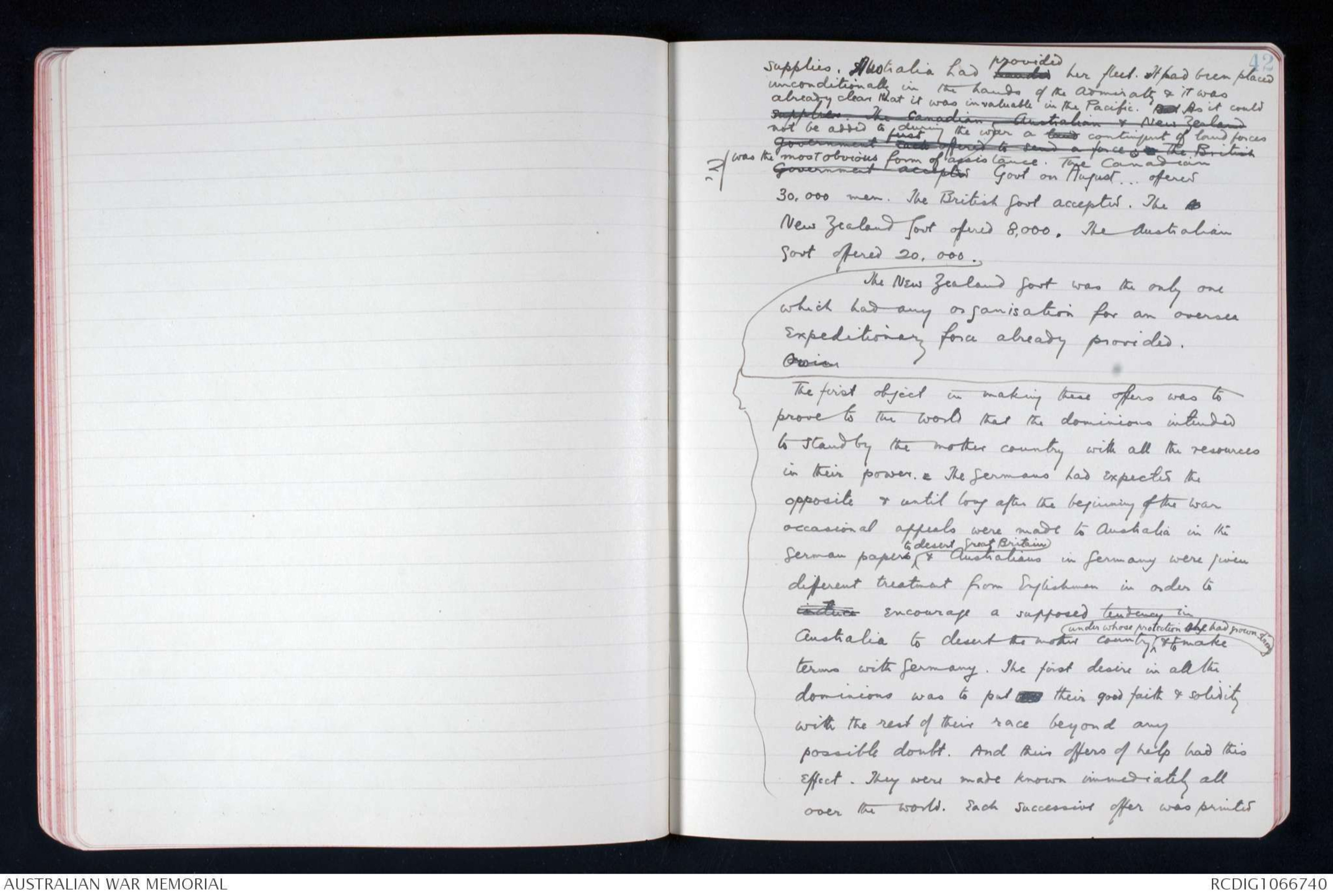
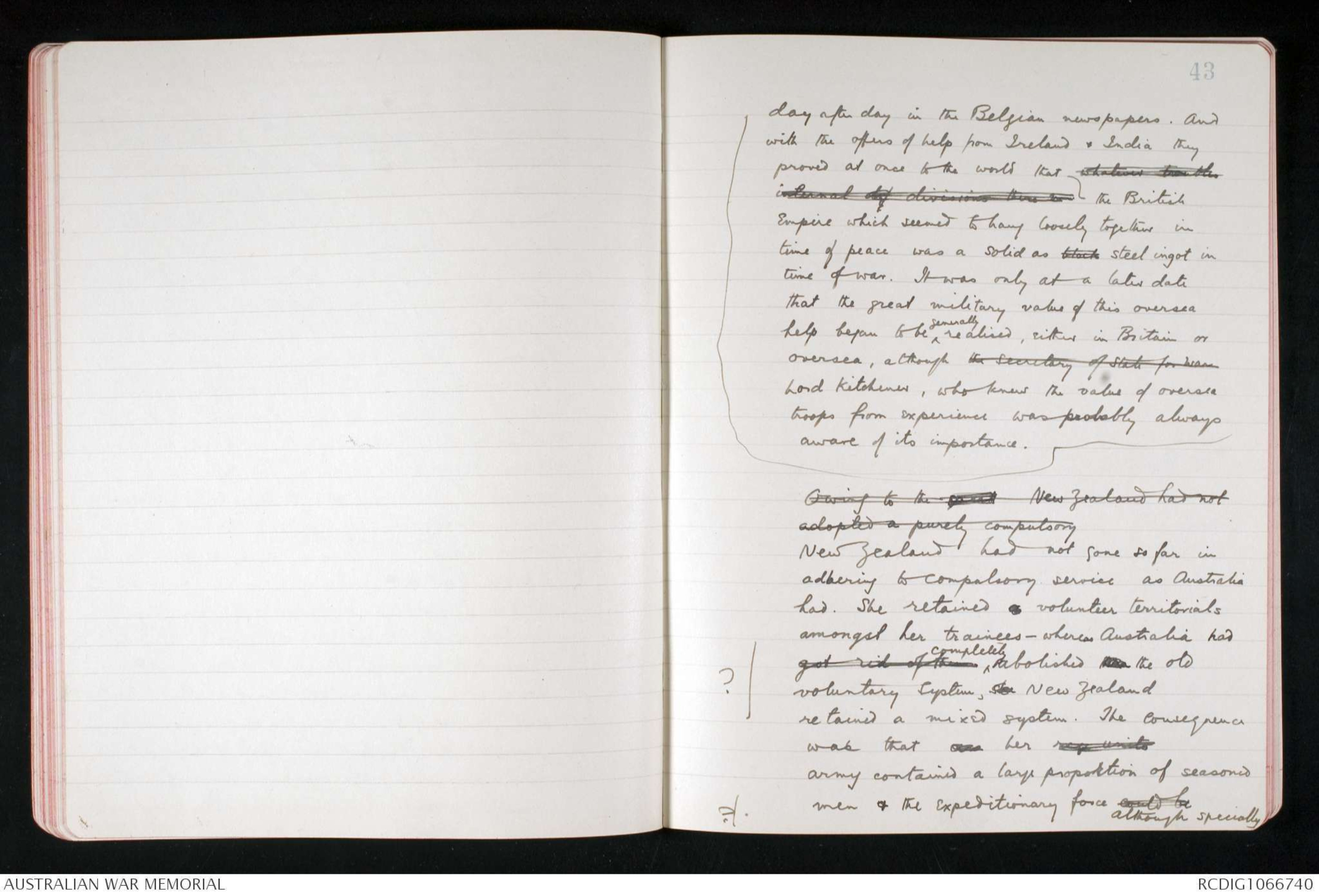
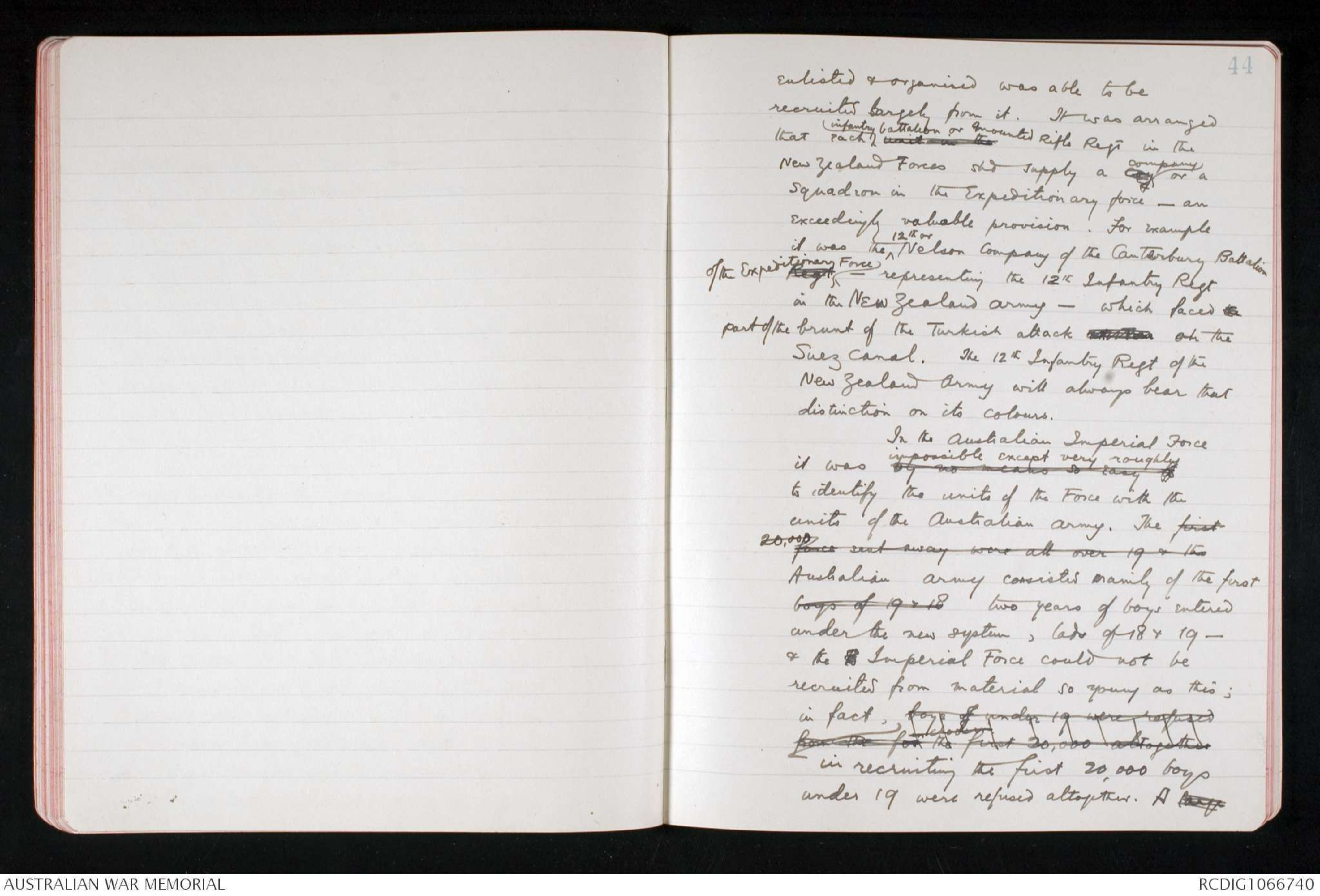
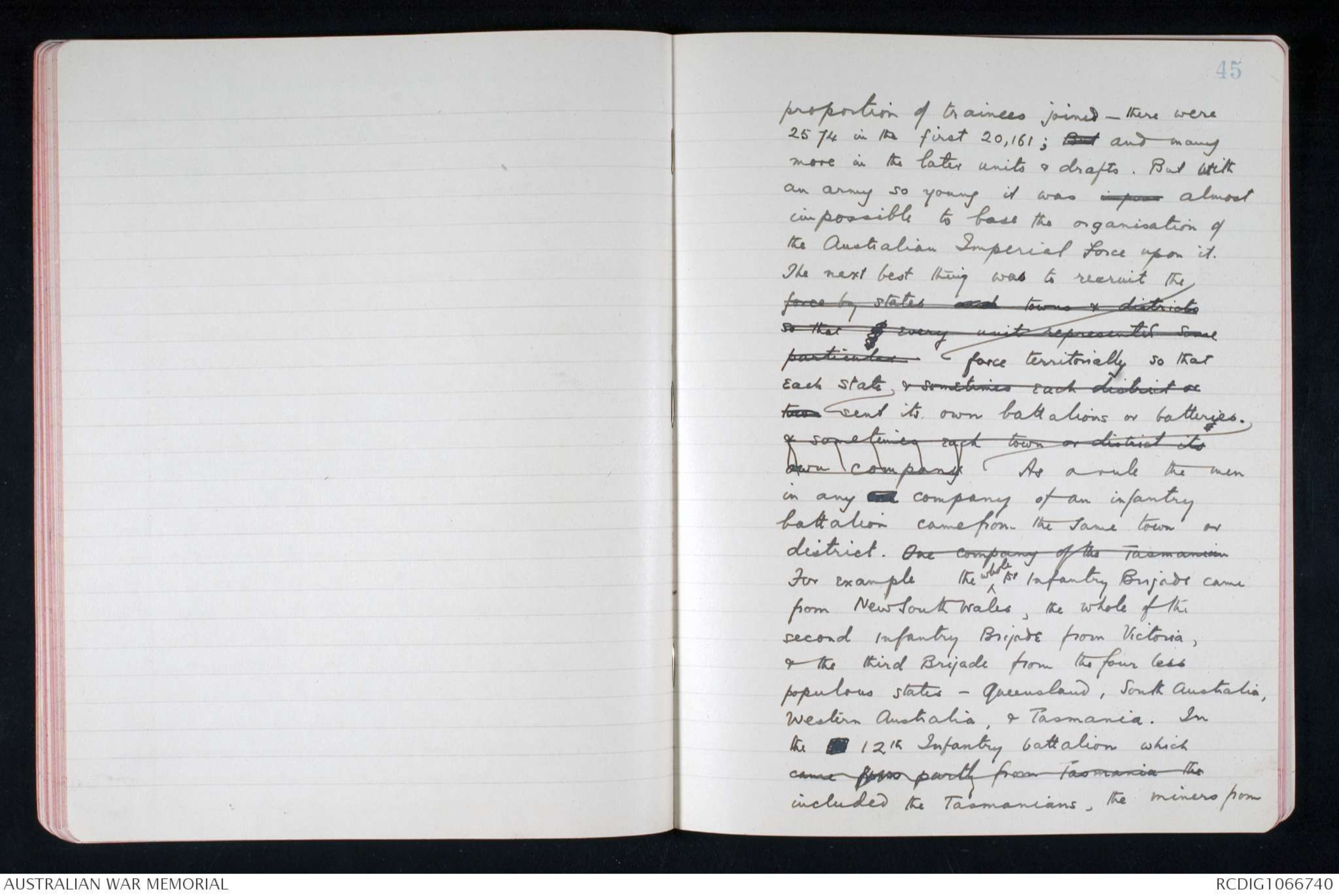
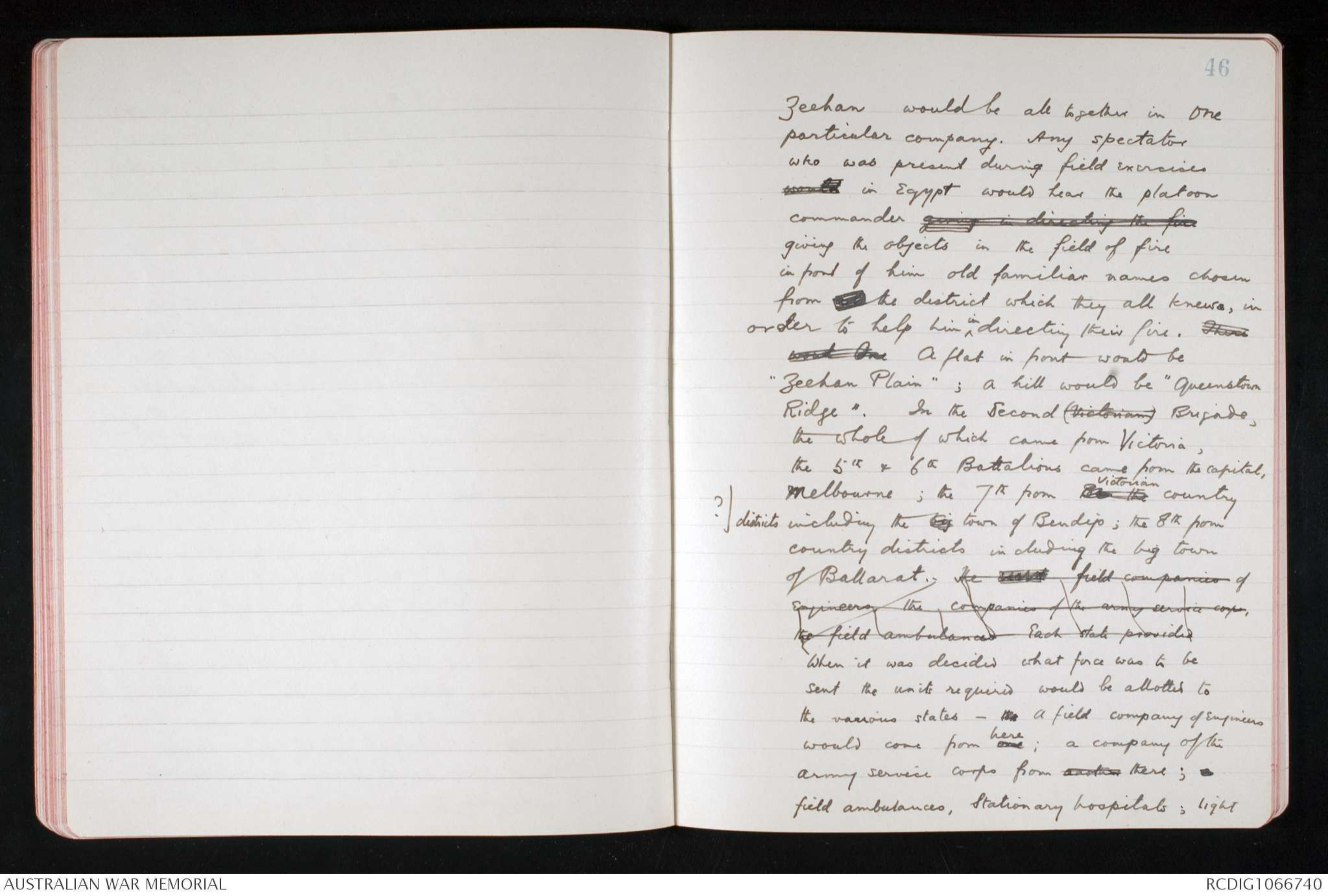
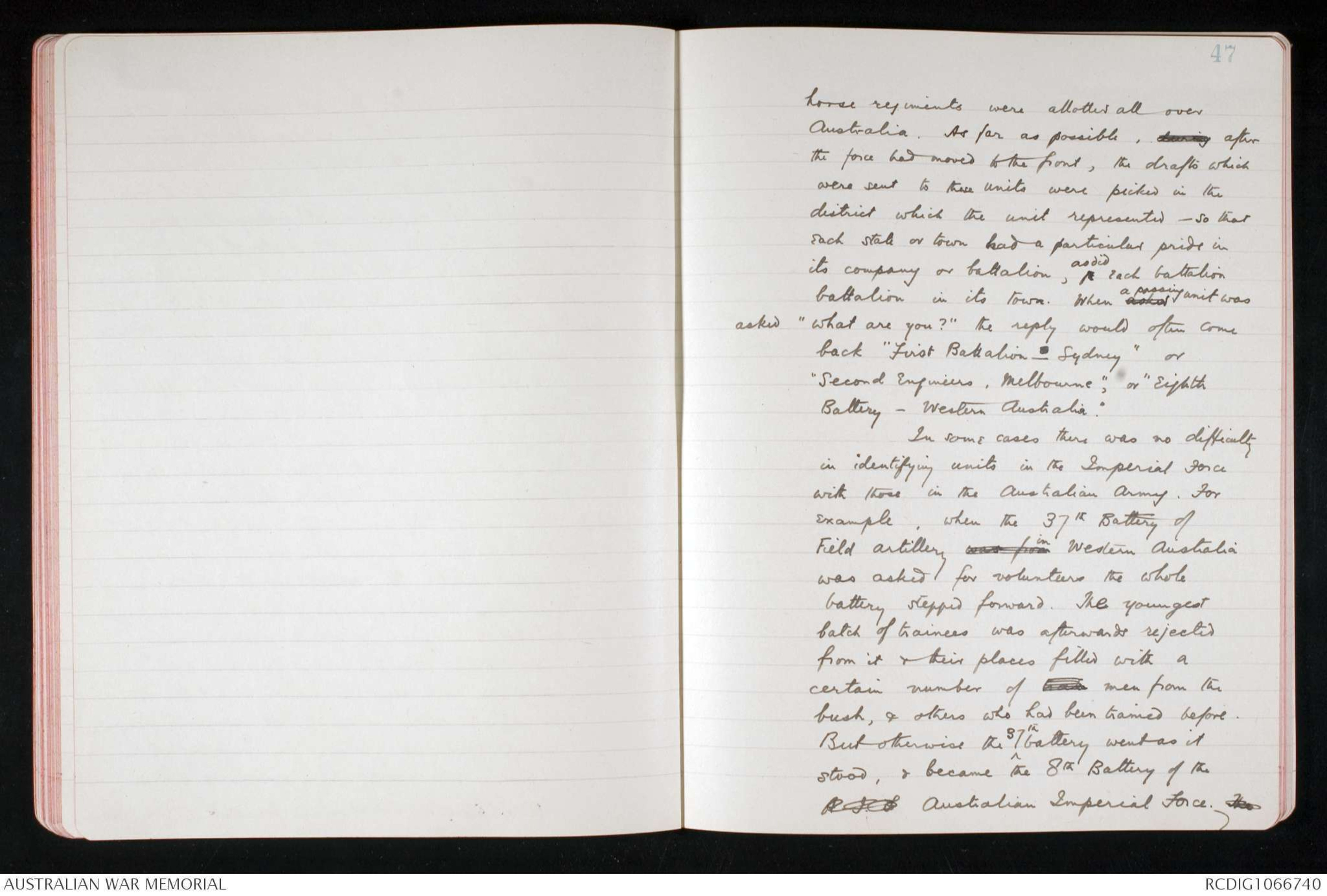
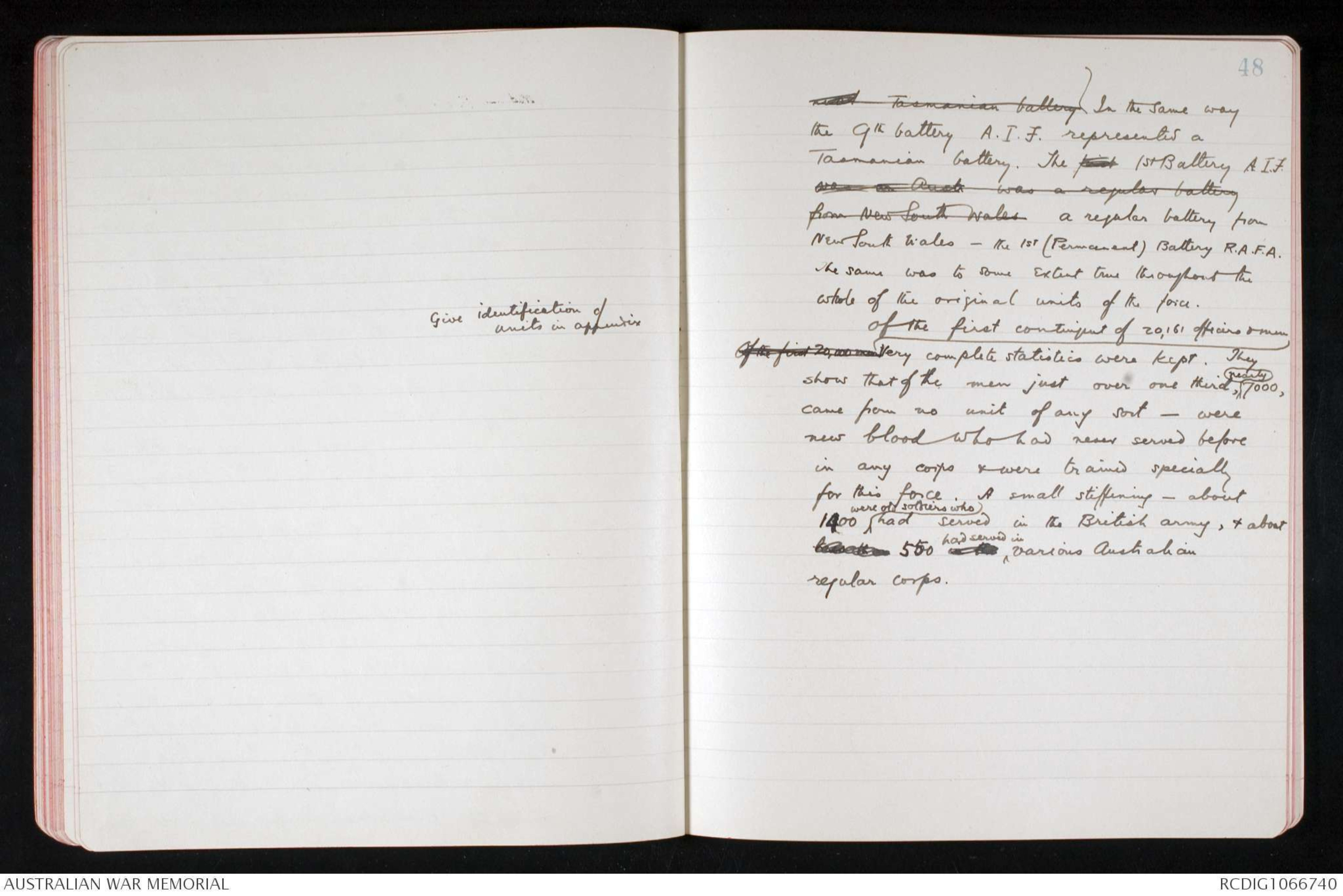
39
Intro.
chance for the abolition of the huge armaments under
which the Germans militaryx caste, had done
more than any other factor, had forced upon
the world. xxxx It is the actual truth that from
the hour when the warxwasxxxx Germany invaded Belgium not one
in a thousand of the British people or Australian
people regretted that the British Empire was
in it xx Once the war had been begun, the
British people in every part of the world was
resolved not to end it until the German military
caste was as far as possible broken &
XX put is a position to do no further. There
was no great anim feeling against the German
people which only had to bear the
responsibility for never having had the
enterprise to xxx itself of the military caste
let itself be xxxxxxxxx & educated into
a condition quite different allowed a small
military caste to dragoon x road it into
becoming a mere military machine for
making was doing what ever its military
Chiefs ordained & not having had the
enterprise, such as a like other nations,
to overthrow the military class that
rode over it rough shod. In Australia, even
amongst those ^the small number who are ordinarily not over
40
Intro
friendly to Britain, then were and amongst
those who were bitterly opposed to war, there
were no two opinions about this war. It
was a war of which Australians hastily
approved; & they were ready to support the
mother country in it, as xx ^ a member of the Commonwealth
Labour Govt put it, even to them if it
meant their own extinction.
41
The A.I.F.
and one of those principles was that, not
whatever may seem the ethics of it in peace,
one of the necessary ways of defence in war is
to attack. & that the It was obvious within
six weeks of the outbreak of war that, if
Britain had not sent her expeditionary force
abroad, the Germans would have taken
Paris nothing could have save Paris &
possibly a large portion of the French army - which
& this in itself would have been a long
step towards losing the war. A month before
that time millions of English people &
Australians also would have questioned
the wisdom of sending that force abroad, &
probably ^ when the situation has passed from memory they will do so again. With the facts
actually before this eyes, nobody dreamed of
questioning its wisdom or its necessity. They saw
too clearly xx that, xx once xx in the war, the one
way to bring it to a successful issue was to
send more & more men. They Britain began by
sending 160,000. In the end she sent 2,000,000.
Within a few days of the beginning of
the war it began other than to be realised
in Australia that the one two ways in which
Australia could be most useful to the
Mother country was by xxx sending men &
42
supplies, Australia had xxxx provided her fleet. It had been placed
unconditionally in the hands of the Admiralty & it was
already clear it was invaluable in the Pacific. xxx As it could
supplies. The Canadians, Australian & New New Zealand
not be added to during the war a xxx contingent of land forces
government each offered to send a force . xx The British
[*?*] was the most obvious form of assistance. The Canadian
Government accepted Govt on August... offerd
30,000 men. The British Govt accepted. The x
New Zealand Govt offered 8,000. The Australian
Govt offered 20,000.
The New Zealand Govt was the only one
which had any organisation for an overseas
expeditionary force already provided.
xxxxx
The first object in making these offers was to
prove to the world that the dominions intended
to standby the mother country with all the resources
in their power. x The Germans had expected the
opposite & until long after the beginning of the war
occasional appeals were made to Australia in the
German papers ^to desert Great Britain & Australians in Germany were given
different treatment from Englishmen in order to
induce encourage a supposed tendency in
Australia to desert the mother country ^under whose protection she had grown strong & to make
terms with Germany. The first desire in all the
dominions was to put xx their good faith & solidity
with the rest of their race beyond any
possible doubt. And their offers of help had this
effect. They were known immediately all
over the world. Each successive offer was printed
43
day after day in the Belgian newspapers. And
with the offers of help from Ireland & India they
proved at once to the world that whatever trouble
internal xx divisions there are the British
Empire which seemed to hang loosely together in
time of peace was a solid as black steel ingot in
time of war. It was only at a later date
that the great military value of this oversea
help began to be ^generally realised, either in Britain or
oversea, although the seretary of state for war
Lord Kitchener, who knew the value of oversea
troops from experience was probably always
aware of its importance.
Owing to the xxxx New Zealand had not
adopted a purely compulsory
New Zealand had not gone so far in
adhering to compulsory service as Australia
had. She retained x volunteer territorials
amongst her trainees- whereas Australia had
got rid of xxxx ^completely abolished xxx the old
[*?*] voluntary system, she New Zealand
retained a mixed system. The consequence
was that xxx her xxx units
army contained a large proportion of seasoned
[*?*] men & the expeditionary force could be although specially
44
enlisted or organised was able to be
recruited largely from it. It was arranged
that each ^infantry battalion or Mounted Rifle Regt in the
New Zealand Forces shd supply a xxx company or a
Squadron in the Expeditionary force - an
exceedingly valuable provision. For example
it was the ^12th or Nelson Company of the Canterbury Battalion
Regt ^of the Expeditionary Force - representing the 12th Infantry Regt
in the New Zealand army - which faced the
part of the brunt of the Turkish attack xxxxx on the
Suez Canal. The 12th Infantry Regt of the
New Zealand Army will always bear that
distinction on its colours.
In the Australian Imperial Force
it was by no means so easy impossible except very roughly
to identify the units of the Force with the
units of the Australian Army. The first 20,000 force sent away were all over 19 & this
Australian army consisted mainly of the first
boys of 19 & 18 two years of boys entered
under the new system, lads of 18 & 19 -
& the x Imperial Force could not be
recruited from material so young as this;
in fact boys x under 19 were refused
from the xx the first 20,00 altogether
in recruiting the first 20,000 boys
under 19 were refused altogether. A large
45
proportion of trainees joined - there were
2574 in the first 20,161; xxx and many
more on the later units & drafts. But with
an army so young it was xxxx almost
impossible to base the organisation of
the Australian Imperial Force upon it.
The next best thing was to recruit the
force by states xxx towns & districts
so that x every unit represented some
particulars. force territorially so that
each state & sometimes each district or
xxxx sent its own battalions or batteries.
& something each town or district its
own company As a rule the men
in any xxx company of any infantry
battalion came from the same town or
district. One company of the Tasmanian
For example the ^whole 1st Infantry Brigade came
from New South Wales, the whole of the
second infantry Brigade from Victoria,
& the third Brigade from the four less
populous states - Queensland, South Australia,
Western Australia, & Tasmania. In
the xx 12th Infantry battalion which
came xxxx partly from Tasmania the
included the Tasmanian, the miners from
46
Zeehan would be all together in one
particular company. Any spectator
who was present during field exercises
would in Egypt would hear the platoon
commander giving in directing the xxx
giving the objects in the field of fire
in front of him old familiar names chosen
from xxx the district which they all knew, in
order to help him in ^directing their fire. There
xxxx One A flat in front would be
"Zeehan Plain" ; a hill would be "Queenstown
Ridge". In the Second (Victorian) Brigade,
the whole of which came from Victoria,
the 5th & 6th Battalions came from the capital,
Melbourne ; the 7th from Bx the Victorian country
[*?*] districts including the xx town of Bendigo; the 8th from
country districts including the big town
of Ballarat. the xxx field companies of
engineers he companies of the army service corps,
the field ambulance each state provided
When it was decided what force was to be
sent the units required would be allotted to
the various states - xx a field company of engineers
would come from xxx here ; a company of the
army service corps from another there; x
field ambulances, stationary hospitals; light
47
horse requirements were allotted all over
Australia. As far as possible, during after
the force had moved to the front, the drafts which
were sent to these units, were picked in the
district which the unit represented - so that
each state or town had a particular pride in
its company or battalion, ^as did each battalion
battalion in its town. When asked a passing unit was
asked "what are you?" the reply would often come
back "First Battalion - Sydney" or
"Second Engineers, Melbourne," or "Eighth
Battery - Western Australia."
In some cases there was no difficulty
in identifying units in the Imperial Force
with those in the Australian Army. For
example when the 37th Battery of
field artillery was from in Western Australia
was asked for volunteers the whole
battery stepped forward. The youngest
batch of trainees was afterwards rejected
from it & their places filled with a
certain number of xxx men from the
bush, & others who had been trained before.
But otherwise the ^37th battery went as it
stood, became the 8th Battery of the
A.I.F. Australian Imperial Force. The
Give identification of
units in appendix
48
xxx Tasmanian battery In the same way
the 9th battery A.I.F. represented a
Tasmanian battery. The first 1st Battery A.I.F.
xxx an Aust was a regular batteryfrom New South Wales a regular battery
from New South Wales - 1st (Permanent) Battery R.A.F.A.
the same was to some extent true throughout the
whole of the original units of the force.
Of the first contingent of 20,161 officers & men
of the first 20,000 men very complete statistics were kept. They
show that of the men just over one third, ^nearly 7000,
came from no unit of any sort - were
new blood who had never served before
in any corps & were trained specially
for this force. A small stiffening - about
1400 ^were of soldiers who had served in the British army, & about
xxxxx 550 in the had served in various Australian
regular corps.
 Maralyn K
Maralyn KThis transcription item is now locked to you for editing. To release the lock either Save your changes or Cancel.
This lock will be automatically released after 60 minutes of inactivity.